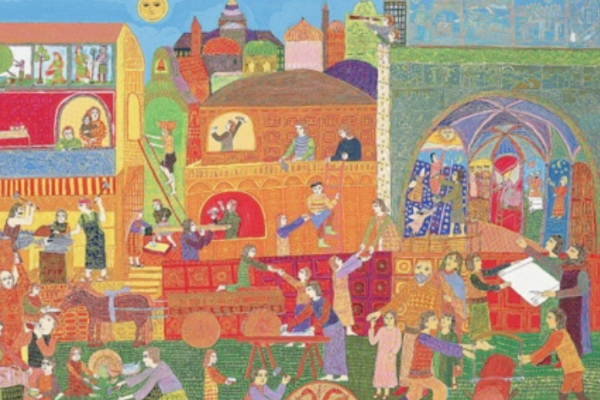
A Collaborative Column: Stories of Public Hope Revived
THE LOSS OF PUBLIC HOPE?
by Len Krimerman, GEO Collective
Some days it does seem that we are on the wrong planet, that the worst aspects of humanity are now beyond challenge and are inescapably producing disasters – unending warfare, global climate crises, abominable increases in child slavery – that will bring short term profits to a few and leave the rest of us penniless and powerless. In his book, Radical Democracy, philosopher C. D. Lummis speaks of the “loss of public hope”:
In Japan, where I live most people….have no public hope. Their attitude about the future of their country, or the future of the world, is typically one of bland despair. They talk easily and vaguely about the probable continuation of the destruction of nature, of the unlikelihood that they will ever achieve popular control over the entrenched political cliques that run their government, about the inevitable death of freedom in the techno-management society of the future. The belief that none of these things can be avoided by the action of mere human beings (which is to say, that democracy is impossible) has become common sense.
This new GEO column aims squarely at taking a bite out of this loss of public hope. For despite all the dispiriting news we are fed daily, I’m still convinced that there are many stories – more and more of them – that point in very hopeful directions. As Arundhati Roy so beautifully puts it: “Another world is not only possible, she is on her way. On a quiet day, I can hear her breathing.”
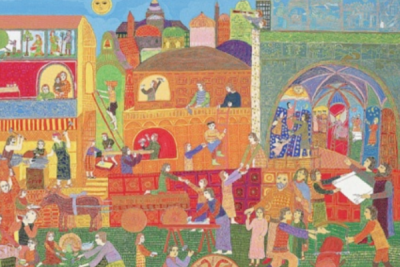
A COLLABORATIVE COLUMN
Our collaborative task, if you decide to join with me, is to find, describe, and publicize these new breath stories, and maybe even to connect them. I’ll do my part, providing and discussing a few stories at the middle of each month. But to really document the rising of public hope, I’ll need all the help I can get from the ones you send in. YOUR stories can be sent to editors@geo.coop (graphics and photos are always welcome).
These public hope stories can be short or long; I’ve found that for an online audience, about 1000-1500 words are usually enough, but occasionally more is better – as in our first story below. So, if you feel more detail or clarification is warranted, take the space you need. Let’s get started by looking at an amazing example.
REVIVING PUBLIC HOPE, STORY #1:
An Accredited Graduate Program that is Helping to Build that Possible New World
Back when I was teaching undergraduates, one of my most challenging – and often frustrating – tasks was helping them find a graduate program that spoke at least as much to their hearts as to their heads.
There were of course a multitude of fine university graduate programs, some with brilliant scholars who also were humane, caring, even inspirational teachers. But many of the students I was closest with, e.g., those who wrote for GEO or put together issues of its predecessor, Changing Work, wanted something more, something very different. They wanted programs that combined theory with practice and would enable them to contribute to activist movements – to help create and shape them – and not merely learn about them. And in many cases they also wanted the option of going beyond a Masters degree, and the security of studying at a fully accredited institution. Back in the 1970s, 1980s, and even the 1990s, I found this combination of criteria extremely difficult to fulfill.
The good news is that today, and going back much more than a decade, there is a program that meets these criteria and can make the journey for activists into graduate education immensely worthwhile. It’s located in Carpinteria, CA, just south of Santa Barbara, where it is part of the Pacifica Graduate Institute. More specifically, the Community Psychology, Liberation Psychology, and Eco-Psychology (CLE) specialization of the M.A./Ph.D. Depth Psychology Program. In what follows, I’ve reprinted some of this material, as well as some student-authored stories of their own unique educational experiences.
This specialization is a bold initiative to forge transdisciplinary transformative approaches to the critical personal, community, cultural, and ecological challenges of our time. We are working to develop a new geography for the life affirmative roles that psychologists can undertake to assist in re-imagining and creating individual, cultural, and ecological restoration and transformation. This necessitates a radical engagement in re-conceiving psychology as a potentially liberatory force in society. We are committed to the development of psychologies that are more adequate to the problems we face, and to the realization of the dreams and hopes we harbor for a more just, peaceful, and sustainable world. We have forged our specialization in Community Psychology, Liberation Psychology, Indigenous Psychologies and Ecopsychology with these values in mind. They guide our efforts toward rebuilding fragmented cultural and ecological connections, and to creating forms of democratic, dialogical, joyful, sustainable, and nonviolent living….
Through community and ecological fieldwork and research, students work in the area of their calling, while deepening their ethical discernment, reflecting on their own positionality, widening their repertoire of dialogue and arts-based approaches.
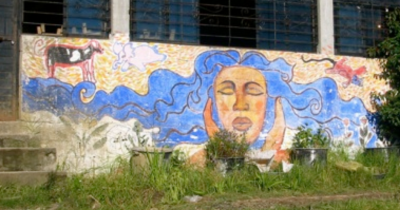 Praxis classes mentor students in a variety of approaches to working with groups: council/ circle, appreciative inquiry, theater of the oppressed, public conversation, open space technology, community dream work, liberation arts, restorative justice, somatic approaches to trauma healing, conflict transformation, and imaginal and ritual approaches to community health and healing. Students gather the theoretical insight and practical skills to conduct participatory action research, policy interventions, community program evaluation, and grant-writing to contribute to community-based resource mobilization.
Praxis classes mentor students in a variety of approaches to working with groups: council/ circle, appreciative inquiry, theater of the oppressed, public conversation, open space technology, community dream work, liberation arts, restorative justice, somatic approaches to trauma healing, conflict transformation, and imaginal and ritual approaches to community health and healing. Students gather the theoretical insight and practical skills to conduct participatory action research, policy interventions, community program evaluation, and grant-writing to contribute to community-based resource mobilization.
Students and alumni work in fields such as education (high schools, colleges, universities, prisons, alternative learning centers, youth programs); prison reform and restorative justice initiatives; arts-based community building; trauma healing; advocacy and grassroots coalitions; social justice; organizational development and transformation; peacebuilding and community dialogue; health services (including hospice); NGO's (nongovernmental organizations); planning and evaluation; land preservation, peak oil planning and sustainability issues, local food initiatives; philanthropy; microlending and economic alternatives. Courses include:
Council Practice
Appreciative Inquiries
Community Theater
Community Dreamwork
Restorative Justice
Public Conversation
Depth Transformative Practices
Psychologies of Liberation
Indigenous Psychologies
Community Building and Empowerment
Liberatory Pedagogy
But let’s listen now to the students themselves, who have written about their experiences in this specialization’s annual newsletter, Hearing Voices. The CLE program understands this title “…in two senses: in our commitment to hear the multiple voices of psyche, communities, and earth – particularly those that are marginalized; and in raising our own voices that are informed by what we have closely listened to and witnessed in the world and in ourselves for social justice, peace and sustainability.”
Healing and Rebuilding Our Communities
by Lizzy Rodriguez and Shelly Stratton, 2nd and 3rd Year Students
[Editors’ Note: For their summer community fieldwork, Lizzie Rodriguez and Shelly Stratton attended an international training for facilitators of “Healing and Rebuilding Our Communities” in Rwanda.]
 In response to the high level of post conflict suffering resulting from the 1994 Rwandan genocide, the Friends Peace Teams and concerned Rwandans collaborated in the development of Healing and Rebuilding Our Communities (HROC), a community-based program that promotes healing and reconciliation from conflict related trauma.
In response to the high level of post conflict suffering resulting from the 1994 Rwandan genocide, the Friends Peace Teams and concerned Rwandans collaborated in the development of Healing and Rebuilding Our Communities (HROC), a community-based program that promotes healing and reconciliation from conflict related trauma.
The HROC program brings together survivors and genocidaires, supporting opportunities for reconciliation, transformation, and a deeper understanding of individual and community responses to trauma. In August 2012, we traveled to Rwanda to participate in the HROC international facilitators training.
HROC has adapted the Alternatives to Violence Project (AVP) approach to more directly focus on trauma healing and rebuilding communities. While the work of Judith Herman (Trauma and Recovery) also informs this approach, the implementation and guiding principles reflect both Quaker values and the Rwandan/African cultural perspective.
HROC PHILOSOPHY
• In every person there is something good.
• Every person and every society has the innate capacity to heal from trauma.
• Trauma affects both victim and perpetrator.
• The sharing of inner goodness and wisdom builds the trust from which healing grows.
• The healing of a country must also occur at the personal and community levels.
• Trauma recovery and peace building efforts must happen simultaneously.
Since her return from Rwanda, Lizzie has been working closely with Alternatives to Violence Project (AVP)– Santa Barbara to bring its highly successful prison-based conflict resolution program to the Santa Barbara community. This collaborative team of volunteers, which includes community members as well as alumni of Pacifica’s Depth Psychology program and current CLE students, are developing Coming Together, a HROC inspired program dedicated to strengthening community relationships through dialogue and recognition of shared experiences.
Lizzie is also working towards building community capacity and strengthening community relationships through leading a collaboration striving towards utilizing Restorative Justice (RJ) principles in the Santa Barbara Juvenile Justice System. This collaboration is also working towards producing a community RJ symposium, and developing a RJ Task Force and Community Council.
Shelly provides psychosocial support for immigrant/refugee children, families and communities in New Hampshire. She has also collaborated with New American Africans (an African founded non-profit) in facilitating the development of an African community organization consisting of individuals from Burundi, Congo, Rwanda, Somalia and Sudan. Shelly also provides culturally focused consultation and advocacy within “host community” social services. HROC has contributed to Shelly’s vision for more authentic, community based, and culturally relevant psychosocial supports in the small rural cities of Manchester and Concord, NH.
Occupy Santa Ana – “Otro Mundo es Posible”
by Madeleine Spencer, 2nd Year Student
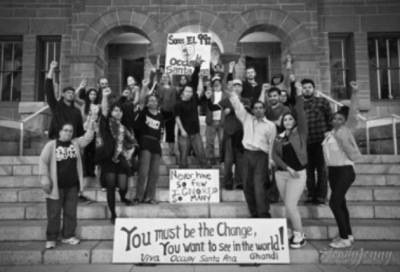 In the last year and a half Occupy Santa Ana has realized that synergies for social change lies heavily in the strength of our networks of communication and the important collaborations between the many associated centers of democratic power within our community. The tools provided by the Community-Eco-Liberation Psychology Program at Pacifica has been pivotal in providing guidance along this way. Gene Sharp taught us where we needed to go in finding these centers of democratic power within our community. These centers of democratic power are made up of residents, unions, nonprofit or grassroots organizations, cultural centers, artist groups, gardening groups, business associations as well as political and media alliances.
In the last year and a half Occupy Santa Ana has realized that synergies for social change lies heavily in the strength of our networks of communication and the important collaborations between the many associated centers of democratic power within our community. The tools provided by the Community-Eco-Liberation Psychology Program at Pacifica has been pivotal in providing guidance along this way. Gene Sharp taught us where we needed to go in finding these centers of democratic power within our community. These centers of democratic power are made up of residents, unions, nonprofit or grassroots organizations, cultural centers, artist groups, gardening groups, business associations as well as political and media alliances.
These collaborations have enabled us as a small group and part of a larger community of groups, to organize and mobilize in greater numbers. This organization has shown us the immeasurable capacity we have for creating the necessary socio-structural changes so direly needed within our community. Occupy Santa Ana, since its inception, has been closely modeling itself after Jahoda’s Marienthal Project, working together as a participatory-action-research team within our community, where we have become representatives within these many groups joining them to effectively participate in a system of fluid exchanges that has allowed us begin creating the necessary structural changes
within our city.
The first major step was in the work of legislating the Sunshine Ordinance in Santa Ana, this brilliant ordinance is one of the most comprehensive and progressive transparency laws in the country to date (2013). The motto here in Santa Ana is “Si Se Puede” and on the horizon the community works with the strong belief that “Otro Mundo es Possible”!
For many more CLE student stories, visit the CLE News and Events page.
SEND US YOUR PUBLIC HOPE RISING STORIES TO editors@geo.coop
Go to the GEO front page

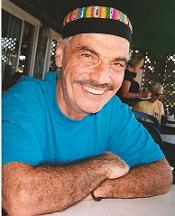 Len Krimerman lives, works, dances, and dreams in rural eastern Connecticut, and has helped build bridges between the many varieties of grassroots democracy over the past five decades. In this, he has invariably been mentored by his amazing GEO colleagues, by the imagination and support of his lifelong partner, Marian Vitali, and by the courageous activism of so many of his students and community partners. Marian and Len are now engaged in helping develop the Windham Hour Exchange, a community barter initiative in and around Willimantic, CT.
Len Krimerman lives, works, dances, and dreams in rural eastern Connecticut, and has helped build bridges between the many varieties of grassroots democracy over the past five decades. In this, he has invariably been mentored by his amazing GEO colleagues, by the imagination and support of his lifelong partner, Marian Vitali, and by the courageous activism of so many of his students and community partners. Marian and Len are now engaged in helping develop the Windham Hour Exchange, a community barter initiative in and around Willimantic, CT.
Add new comment